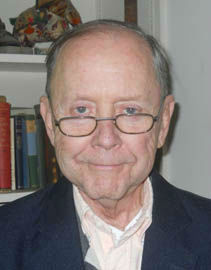
Culture
The election aside, the next two years are shaping up as crucial for the prolife cause in other ways.

Shaw
Let us agree that the 44 Democratic senators whose votes last month blocked the Born Alive Protection Act aren't monsters. But, that agreed; let us also agree that what they did had the monstrous result of providing legal cover for the moral equivalent of infanticide.
How did we get here? It's no mystery. The mad logic of political calculation and ideological fanaticism working together has taken us to this point.
Note that the bill actually received 53 votes in the all-important cloture vote in the Senate. But because arcane and dysfunctional Senate rules require 60 votes to halt a filibuster, the 44 nays had it.
Note, too, that six of the senators who voted to block the legislation -- which would have required giving medical care to infants born alive via late-term abortions -- seek the Democratic Party's presidential nomination. They are Cory Booker, Kirsten Gillibrand, Kamala Harris, Amy Klobuchar, Bernie Sanders, and Elizabeth Warren.
As that suggests, what this Senate vote tells us about the 2020 election is deeply disturbing. Barring some drastic, unforeseen development, we are likely next year to witness a replay of 2016, which saw an ardent advocate of legalized abortion, Hillary Clinton, pitted against Donald Trump, who as president has delivered on the life issues while also becoming an intensely polarizing figure.
For some, this means the choice in 2020 will likely be as painful as in 2016, when they resolved the dilemma for themselves by not voting or backing marginal candidates or write-ins.
The election aside, the next two years are shaping up as crucial for the prolife cause in other ways. That isn't because of any new legislation likely to pass in the stalemated Congress but, as has happened often before, because of developments in the Supreme Court.
As this is written, the justices have not yet said whether they will consider either or conceivably both of two cases raising the abortion issue and the reign of Roe v. Wade (1973) and Planned Parenthood v. Casey (1992), the court's two major -- and intensely controversial --
abortion decisions so far.
One of the new cases, from Indiana, involves a state law barring eugenic abortions performed because of fetal disability or sex, while requiring that the remains of aborted fetuses be buried or cremated rather than disposed of as medical waste. The other, from Louisiana, involves a law requiring that abortion clinic abortions be performed by doctors with admitting privileges at nearby hospitals.
If the Supreme Court accepts either or both of these cases for argument next fall and a decision early in 2020, the stage will be set for a fresh national debate on abortion in the superheated atmosphere of a presidential election year.
The craziness that the abortion issue evokes in some people is illustrated not only in the defeat of the Born Alive Protection Act but in a proposal currently being pushed by what the Washington Post describes as "some liberal groups" to empower the next Democratic president to add four more justices to the Supreme Court, thereby bringing the total to 13.
The newspaper quotes several prominent Democrats, including former Attorney General Eric Holder and presidential contenders Gillibrand and South Bend mayor Pete Buttigieg, on behalf of the idea as representing, in Buttigieg's words, a desirable "level of intellectual and policy ambition" for the party.
But if a harebrained court-packing scheme advocated with the aim of advancing ideological interests, whether ultra-liberal or ultra-conservative, ever in fact becomes the "level of intellectual and policy ambition" of either major party, God save the United States.
- Russell Shaw is the author of more than twenty books. He is a consultor of the Pontifical Council for Social Communications and served as communications director for the U.S. Bishops.
Recent articles in the Culture & Events section
-
Tolkien's world, still popular on the big screen, began with faith and wordsCecilia Hadley
-
Scripture Reflection for Dec. 22, 2024, Fourth Sunday of AdventDeacon Greg Kandra
-
Getting adult children to Christmas MassGreg Erlandson
-
The work of redemptionEileen McLaughlin
-
Intern reflectionsEmily Greco and James Kaeser


















